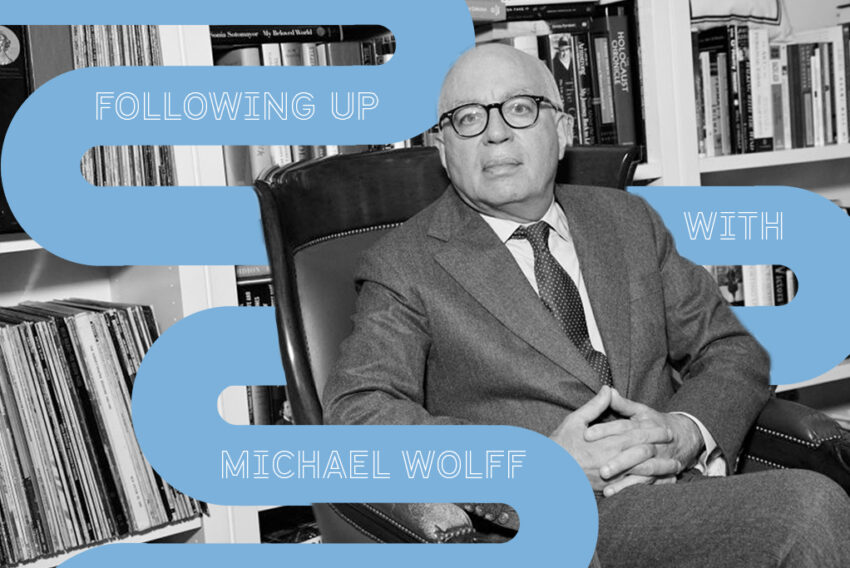Exploring the Connections Between Michael Wolff, Jeffrey Epstein, and Business Ethics
In recent times, the conversations surrounding the connections and implications of notable figures in society have taken a sharper focus, particularly as we delve into the narratives crafted by journalists and authors. One such example is Michael Wolff, a compelling author and journalist who is known for his incisive takes on figures like Donald Trump, and his indirect associations with controversial personas such as Jeffrey Epstein. This blog post aims to explore the nuanced relationship between Wolff’s reporting, the implications of Epstein’s legacy, and what this means for business ethics in contemporary society.
The Background: Michael Wolff and His Work
Michael Wolff is an American author, journalist, and a familiar face in political commentary. His style is characterized by an engaging narrative that often uncovers the hidden machinations behind figures in politics and business. His book, Fire and Fury: Inside the Trump White House, became a bestseller and incited significant discussion about transparency and truth in political reporting.
Wolff’s approach has not only shaped public perception about presidential behavior but also set a precedent regarding how journalism interacts with powerful individuals. As discussions regarding accountability are amplified, one can’t help but consider the responsibility of the media in addressing figures like Jeffrey Epstein, whose network and actions have raised critical questions about ethical boundaries in business and personal relationships.
Understanding Jeffrey Epstein’s Legacy
Jeffrey Epstein was a financier and convicted sex offender whose ties to numerous high-profile individuals, including politicians, business leaders, and celebrities, have made him a subject of extensive media scrutiny. Epstein’s actions over the years exposed a dark underbelly of privilege and power dynamics, wherein many who interacted with him found themselves embroiled in scandal and controversy.
Significantly, Epstein’s network included figures such as Donald Trump, Bill Clinton, and myriad influential business magnates, which creates an unsettling backdrop when discussing ethics in commerce. The entanglements of these individuals with Epstein had wide-ranging implications not just personally, but for the institutions they represent. In examining the financial and reputational damages faced by corporations that were connected with Epstein, we see a poignant narrative on the necessity of rigorous ethical standards.
The Intersection of Wolff’s Narratives and Epstein’s Reality
Through his writings, Michael Wolff often sheds light on the complexities of relationships between powerful figures. An insightful perspective provided by Wolff can be found in his reporting about Donald Trump, which often skirts around deeper questions about peer relationships and moral responsibilities. As such, there are implicitly rich discussions stemming from how these narratives intertwine with the stark reality presented by Epstein’s life and actions.
This is particularly relevant when considering how narratives in business and politics are spun, as well as how media representation can both illuminate and obscure reality. Analysts and scholars, like those contributing to the Yale Review, address these complexities, weighing the moral obligations journalists have when documenting the lives of influential, yet deeply flawed individuals.
Business Ethics in the Context of Media Reporting
The entanglements highlighted in Wolff’s writings urge HR professionals and business leaders to actively engage in discussions surrounding accountability and ethics. The Epstein case exemplifies the profound impacts that ethical lapses can have on businesses; once an abuser or a morally bankrupt figure becomes publicly connected to an organization, the repercussions can be damaging and far-reaching.
In the modern world, leaders must remain vigilant against not just the actions within their organizations, but the broader discourse that shapes public perception. Regular training in ethical standards, transparent decision-making processes, and robust whistleblower protections can help in cultivating an environment of trust. Furthermore, as the implications of engaging with controversial figures become clearer through cases like Epstein’s, there arises a need for refined guidelines on personal conduct and business association dispositions.
Moving Forward: The Role of HR Leaders
With every emerging trend and narrative, those at the helm of HR departments have a vital role to play in fostering an ethical culture. Understanding the intersection of media narratives and business ethics allows for a more profound engagement with employees regarding their individual responsibilities and the potential consequences of their actions.
HR leaders are encouraged to actively participate in shaping dialogue around the ethical complexities surrounding their business operations. By embedding ethical considerations into organizational strategy and decision-making processes, organizations can combat negative perceptions that arise from associations with controversial figures, like Jeffrey Epstein. This proactive approach not only shields organizations from reputational harm but also builds sustainable growth rooted in integrity.
Conclusion
The relationship between Michael Wolff, Jeffrey Epstein, and the modern business landscape serves as a crucial case study on the intersections of media, power, and ethics. As we navigate the complex terrain of leadership, it’s clear that the blending of these domains requires a heightened sensitivity to the narratives we craft and the influences we succumb to.
For business leaders and HR professionals alike, engaging with these issues is no longer optional; it’s a necessity for fostering a transparent culture of accountability. By reflecting on how stories are told and the characters that populate them, we hold the capacity to not only reshape our organizations but also the broader conversation around ethics in business.





